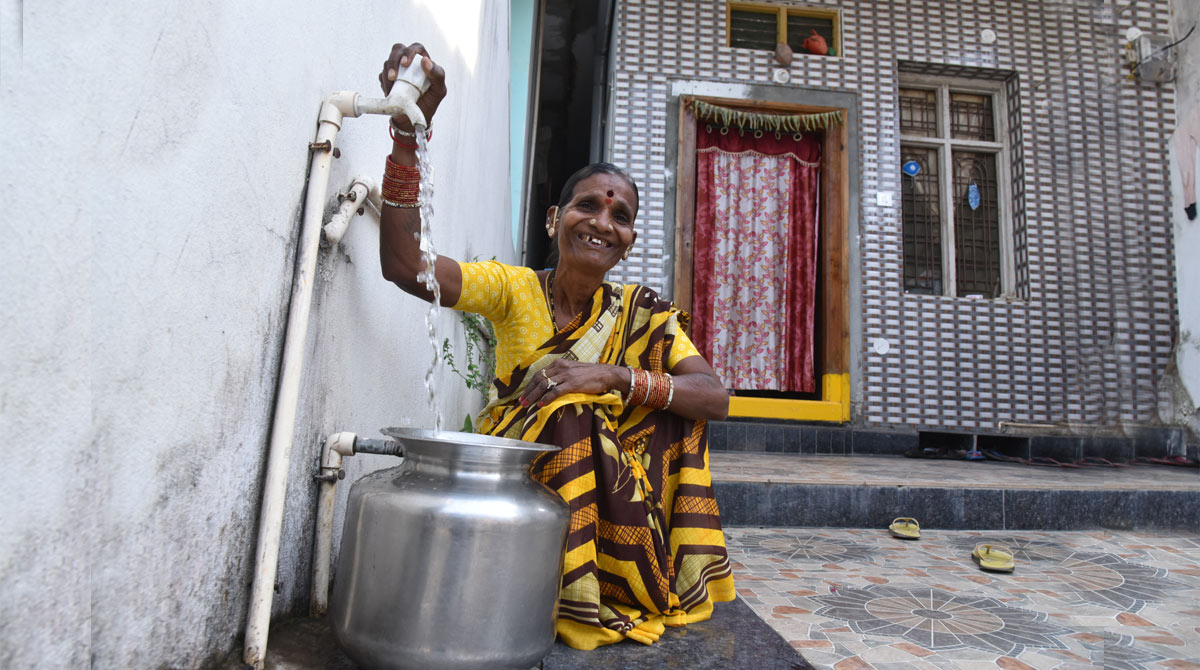Hyderabad Tackles Water Woes with Strategic Solutions
Hyderabad’s water supply system faced a year of formidable challenges and notable progress in 2023, as the city struggled with severe water shortages while also achieving key milestones in sewage treatment and infrastructure improvement. The Hyderabad Metropolitan Water Supply & Sewerage Board (HMWS&SB) worked under considerable pressure to meet the city’s rising demand, while also focusing on long-term solutions. Despite facing a record number of water tanker trips and a water-scarcity crisis, the city has made visible strides in addressing its sewage management and infrastructure challenges.
The city’s water crisis reached new heights, especially in the western parts, where residents experienced acute shortages during the peak summer months. Drawing comparisons to Bengaluru’s struggles with water shortages, Hyderabad saw a surge in demand, with the Board logging over 16.43 lakh water tanker trips this year. Of this, more than 7.3 lakh trips occurred during the summer alone, setting a new record. With a fleet of 730 tankers and 78 filling stations, the Board was able to ensure a steady supply, but the sheer scale of the challenge highlighted the urgent need for sustainable water management practices. The city’s daily consumption of 560 million gallons is projected to rise to 867 million gallons by 2030 and 1,114 million gallons by 2050, making long-term planning crucial.
Amidst this crisis, the HMWS&SB also focused on addressing the city’s sewage treatment needs. Currently, only 46% of the 1,950 million litres of sewage generated daily is treated, with the remaining waste adding to the city’s environmental concerns. In response, the Board launched an ambitious ₹3,866 crore project to build new sewage treatment plants (STPs), aiming to treat the remaining sewage. With 11 new STPs inaugurated this year and nine others in their final stages, the city is on track to increase its sewage treatment capacity by over 1,100 million litres per day. These initiatives are a significant step toward ensuring the sustainable management of wastewater, a critical issue for rapidly growing urban centres like Hyderabad.
One of the standout achievements of the year was the successful implementation of a 90-day special drive, which aimed to address long-standing sewage issues and improve groundwater recharge through rainwater harvesting. Initiated on October 2, the drive focused on desilting over 2,106 kilometres of sewage pipelines and cleaning 1.68 lakh manholes. This effort led to a 30% reduction in sewage overflow and chokage complaints, marking a significant improvement in the city’s sewage management system. This proactive approach, led by field inspections and dedicated efforts by HMWS&SB staff, showcased the Board’s commitment to improving both the city’s infrastructure and its citizens’ quality of life.
In addition to tackling water and sewage issues, the Board also introduced a one-time settlement scheme in 2024, which encouraged 1.17 lakh consumers to clear their outstanding dues. This initiative, which resulted in ₹102 crore in total payments, also provided a discount of ₹35 crore to consumers, helping to bolster the Board’s finances and ensure continued service delivery. The successful implementation of this scheme reflects the importance of public participation and engagement in solving urban challenges.
From a sustainability perspective, Hyderabad’s approach to water and sewage management this year highlights the importance of integrated solutions that balance immediate needs with long-term sustainability goals. While the city has made significant strides in addressing its water shortages and improving sewage treatment, it is clear that future challenges will require innovative solutions. The city’s growing population and water demand will necessitate more efficient use of resources, increased focus on rainwater harvesting, and a shift towards more sustainable infrastructure development. As Hyderabad continues to expand, it is crucial that both civic authorities and residents work together to ensure a more water-resilient and sustainable urban future.


